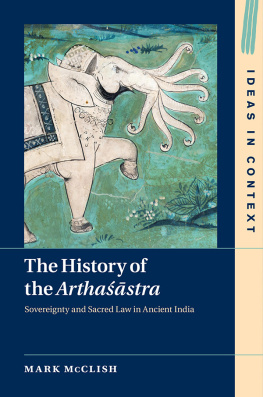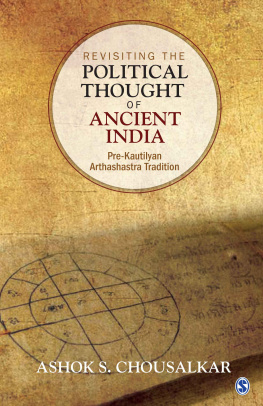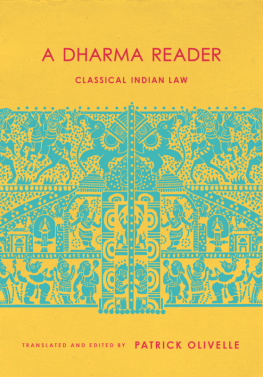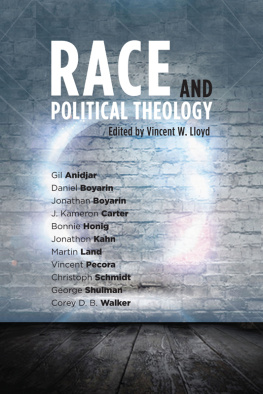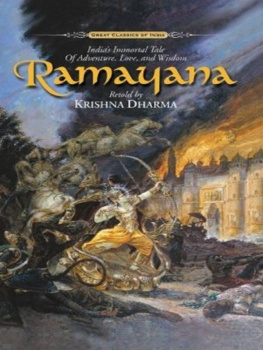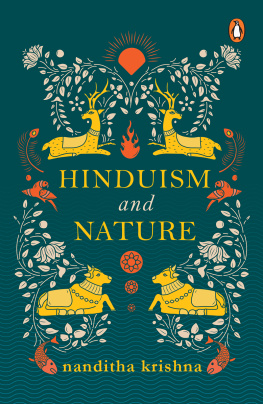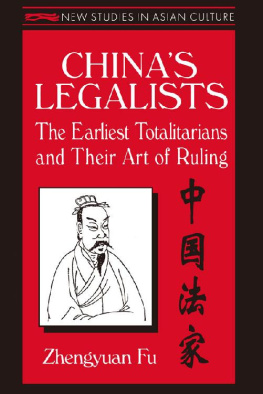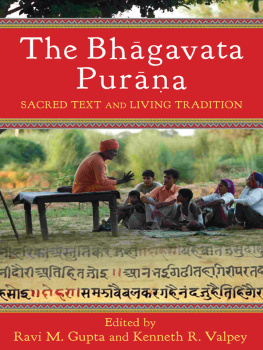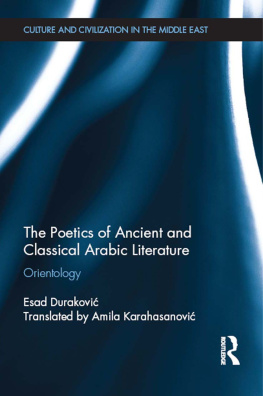The Arthastra is the foundational text of Indic political thought and ancient Indias most important treatise on statecraft and governance. It is traditionally believed that politics in ancient India was ruled by religion; that kings strove to fulfil their sacred duty; and that sovereignty was circumscribed by the sacred law of dharma . Mark McClishs systematic and thorough evaluation of the Arthastra s early history shows that these ideas only came to prominence in the statecraft tradition late in the classical period. With a thorough chronological exploration, he demonstrates that the text originally espoused a political philosophy characterized by empiricism and pragmatism, ignoring the mandate of dharma altogether. The political theology of dharma was incorporated when the text was redacted in the late classical period, which obscured the existence of an independent political tradition in ancient India altogether and reinforced the erroneous notion that ancient India was ruled by religion, not politics.
Mark M c Clish is Assistant Professor of Religious Studies at Northwestern University. He has published a number of works on the Arthastra and ancient Indian law, politics, and religion including the book The Arthastra: Selections from the Classic Indian Work on Statecraft (with Patrick Olivelle, 2012) and numerous articles. He has received support from the Fulbright-Hays program and the Mellon Foundation.
Edited by David Armitage, Richard Bourke, Jennifer Pitts and John Robertson
The books in this series will discuss the emergence of intellectual traditions and of related new disciplines. The procedures, aims and vocabularies that were generated will be set in the context of the alternatives available within the contemporary frameworks of ideas and institutions. Through detailed studies of the evolution of such traditions, and their modification by different audiences, it is hoped that a new picture will form of the development of ideas in their concrete contexts. By this means, artificial distinctions between the history of philosophy, of the various sciences, of society and politics, and of literature may be seen to dissolve.
The series is published with the support of the Exxon Foundation.
A list of books in the series can be found at .
The History of the Arthastra
Sovereignty and Sacred Law in Ancient India
Mark McClish
Northwestern University, Illinois
University Printing House, Cambridge CB2 8BS, United Kingdom
One Liberty Plaza, 20th Floor, New York, NY 10006, USA
477 Williamstown Road, Port Melbourne, VIC 3207, Australia
314321, 3rd Floor, Plot 3, Splendor Forum, Jasola District Centre, New Delhi 110025, India
79 Anson Road, #0604/06, Singapore 079906
Cambridge University Press is part of the University of Cambridge.
It furthers the Universitys mission by disseminating knowledge in the pursuit of education, learning, and research at the highest international levels of excellence.
www.cambridge.org
Information on this title: www.cambridge.org/9781108476904
DOI: 10.1017/9781108641586
Mark McClish 2019
This publication is in copyright. Subject to statutory exception and to the provisions of relevant collective licensing agreements no reproduction of any part may take place without the written permission of Cambridge University Press.
First published 2019
Printed and bound in Great Britain by Clays Ltd, Elcograf S.p.A.
A catalogue record for this publication is available from the British Library.
Library of Congress Cataloging-in-Publication Data
Names : McClish, Mark, author.
Title : The history of the Arthasastra : sovereignty and sacred law in ancient India / Mark McClish.
Description : Cambridge, United Kingdom ; New York, NY : Cambridge University Press, [2019] | Series: Ideas in context | Includes bibliographical references and index.
Identifiers : LCCN 2019002341 | ISBN 9781108476904 (alk. paper)
Subjects : LCSH : Kautalya. Arthasastra. | Kautalya. Arthasastra Criticism, Textual. | Political science India History Early works to 1800. | State, The Early works to 1800. | India Politics and government To 997.
Classification : LCC JA 84. I 4 M 37 2019 | DDC 320.0934dc23
LC record available at https://lccn.loc.gov/2019002341
ISBN 978-1-108-47690-4 Hardback
Cambridge University Press has no responsibility for the persistence or accuracy of URLs for external or third-party internet websites referred to in this publication and does not guarantee that any content on such websites is, or will remain, accurate or appropriate.
fr Alina
Contents
Figures and Tables
Figures
Tables
Preface and Acknowledgments
No work is more important to understanding governance and society in ancient India than the Arthastra , and in this volume I present a theory that makes novel claims as to its original form and its transformation over time. In this, I have endeavored to be as faithful as possible to the evidence at hand, although in giving shape to my conclusions I have often been reminded of something that the great Arthastra scholar R. P. Kangle wrote in the preface to his 1965 study of the work: it cannot be expected that the opinions expressed or conclusions reached here will be found entirely acceptable. In fact, I shall be satisfied if they are regarded as worthy of serious consideration (v). While I hope to have set Arthastra studies on a firmer historical footing than before, I am acutely aware of the limitations of the present work and my indebtedness to the scholars whose names fill this book.
This study was born in Patrick Olivelles advanced Sanskrit course at The University of Texas at Austin in the early 2000s. It was there that I was first introduced to the Arthastra , which we read in tandem with Vikhadattas dramatic masterpiece, the Mudrrkasa . They remain two of my favorite Sanskrit works. As I began to read the Arthastra , I became aware of certain textual peculiarities that seemed to me most easily explained by the presence of multiple hands in the composition of the text. I was, through this, exposed to a body of critical work on the compositional history of the Arthastra , and, with the encouragement of Olivelle, I began in fits and starts to attempt to explain the form of the text. This work consumed my years as a graduate student and resulted in my 2009 dissertation. The project was, unfortunately, set aside early in my career, when my focus shifted to the requirements of teaching-intensive appointments. I am grateful to have been able to return to it in the past few years and bring it to a degree of completion.
As I explored the composition of the Arthastra , I came to see that many passages expressing orthodox Brhmaical sentiments appeared to be secondary additions to the text. Hours reading in and around the Arthastra persuaded me, as I argue in this book, that nearly all of these passages were added during the early phase of an explosion in Brhmaical intellectual and artistic culture that transformed Indian politics and society in the first half of the first millennium CE. This Brhmaical revival has been the subject of numerous studies, most recently in an important series of books by Johannes Bronkhorst. The present volume seeks to portray the Arthastra as an early important witness to the Brhmaical revival, and I hope that it will provide a foundation for further work on what is to my mind the most important historical and religious transformation in the early centuries of the Common Era.

